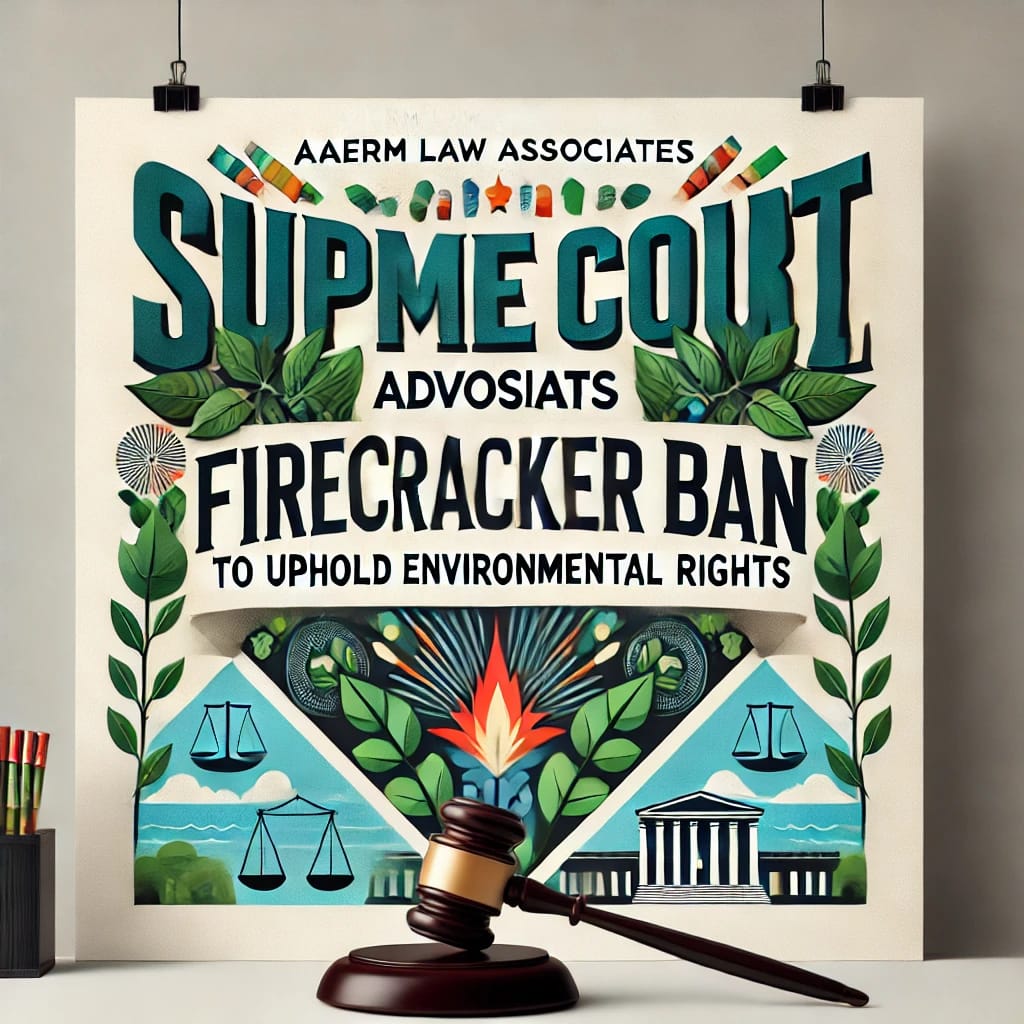
Supreme Court Advocates Strict Firecracker Ban to Uphold Environmental Rights
Court’s Observations
The Supreme Court of India has taken a firm stance on the enforcement of firecracker bans in Delhi-NCR, emphasizing the constitutional right to a clean and healthy environment under Article 21. During a recent hearing, the Court reiterated its concerns about the lack of adequate implementation of previous orders and the need for stricter measures to combat pollution.
In a landmark observation made on November 11, 2024, the Supreme Court highlighted that no religion encourages polluting activities. It called for strict enforcement of firecracker bans, underscoring the shared responsibility of all stakeholders to protect the environment.
The Court stressed that pollution, particularly during festive seasons, has far-reaching impacts on public health, especially for vulnerable populations like children, the elderly, and those with pre-existing respiratory conditions.
Directions Issued
On December 12, 2024, the Supreme Court directed the Delhi government and NCR states to deliberate on the feasibility of a complete, year-round ban on firecrackers. The Court emphasized that such measures are essential to uphold citizens’ fundamental rights and ensure compliance with its earlier orders.
Environmental Concerns
The Delhi-NCR region has long struggled with hazardous air quality levels, particularly during the winter months. Firecracker usage during festivals exacerbates these conditions, contributing to:
- Increased particulate matter (PM2.5 and PM10) levels.
- Deterioration of respiratory health.
- Long-term environmental degradation.
Legal Perspective
The Supreme Court’s directives align with its broader efforts to ensure sustainable development and uphold environmental justice. Article 21 of the Indian Constitution guarantees the right to life, which includes the right to a clean environment. The Court has consistently held that environmental protection is a fundamental duty of both the State and its citizens.
Implementation Challenges
Despite clear directives, enforcement remains a significant challenge. Factors such as:
- Lack of public awareness.
- Inadequate coordination among enforcement agencies.
- Resistance from certain sections of the population.
These hurdles highlight the need for sustained efforts, including public awareness campaigns and stringent penalties for violations.
Conclusion
The Supreme Court’s firm stance on the firecracker ban reflects its commitment to protecting environmental and public health. Effective implementation of these directives requires collective action by governments, enforcement agencies, and citizens alike.
At Aaerm Law Associates, we are dedicated to providing legal insights and advocacy on environmental and constitutional issues. Stay updated with our blog for the latest developments in Indian law and justice.
